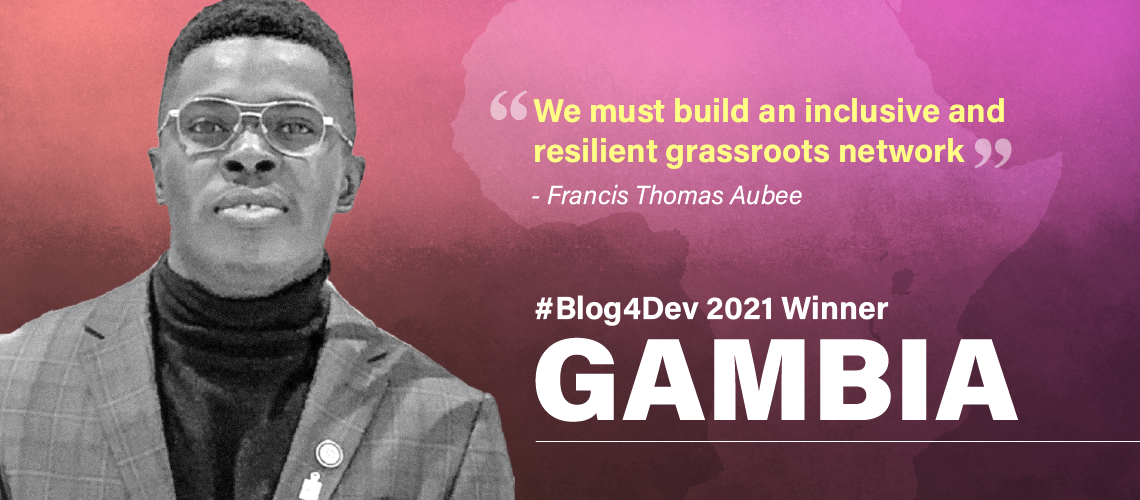 2021 Blog4Dev winner from the Gambia.
2021 Blog4Dev winner from the Gambia.
This is one of 38 winning blogs from the 2021 Blog4Dev competition, the World Bank Africa annual writing contest, inviting young people to weigh in on a topic critical to their country’s economic development. Blog4Dev winners responded to the question: How can young people work with their governments and civil society organizations to respond to the impact of COVID-19 and build a stronger post-pandemic economic and social system?
In my country, the Gambia, youths make up more than 50 percent of the population and are therefore too significant a number to be ignored. Any post-pandemic economic and social development plan must be inclusive of and with the input from the youth . Youths, alongside the government and Civil Society Organizations (CSOs) have a critical role to play. This is how their strengths, skills, resources, and time could create a productive ecosystem for the Gambia going forward.
First, the government should build strong youth empowerment networks and community centers across the country to ensure financial sustainability, youth empowerment, and a vibrant capacity to develop, especially for those in the rural parts of the country. These networks must serve local communities and be led by youths in terms of organizational structure. Providing grants and mentoring programs for entrepreneurial activities would go a long way to strengthen the economic fabric of local communities because many households are dependent on the earnings of the youths.
Second, youths can further contribute to the Gambia’s GDP by increasing their engagement in agricultural activities at various levels. However, the government and CSOs could help in terms of fertilizers, equipment, and, most importantly, to ensure that a robust value chain system that is also value-added is adopted. This will be beneficial for both food self-sufficiency, eliminating food deserts and increase the quality of our exports to remain competitive.
Third, CSOs and the government can create a skill and knowledge-based volunteer training program for youths. This program would serve a long-term purpose of sensitizing the country on health issues, communicable diseases, and the need to listen to expert health professionals. The youths can conduct a door-to-door distribution exercise of flyers and educate those in rural areas who may not be fully aware of the implications of COVID-19 on the Gambia and the way forward.
Fourth, the government of the Gambia, CSOs, and the private sector should create a program that would provide university graduates with valuable opportunities to work, develop professional skills, and earn right after completing university studies. These training programs could range from six to eighteen months depending on the field, industry, and employers’ needs. The end goal will be the retention of these graduates upon completion of their training program. Currently, there is no such program in the Gambia to help curb high youth unemployment.
Finally, as youths are currently in the technology age, the government should create a viable ecosystem and a hub for technological advancement. This will not only spur creative ingenuity, but it will also ensure collaboration amongst the youths to provide solutions to local issues and help them become tech entrepreneurs. With a rapid rise in the use of technological gadgets across the country, many will benefit from an environment in which they can be innovators, build apps and also drive the digitalization of the Gambian economy.
Francis Thomas Aubee is the 2021 Blog4Dev winner from the Gambia. See the full list of 2021 Blog4Dev winners here, and read their blog posts.


Join the Conversation